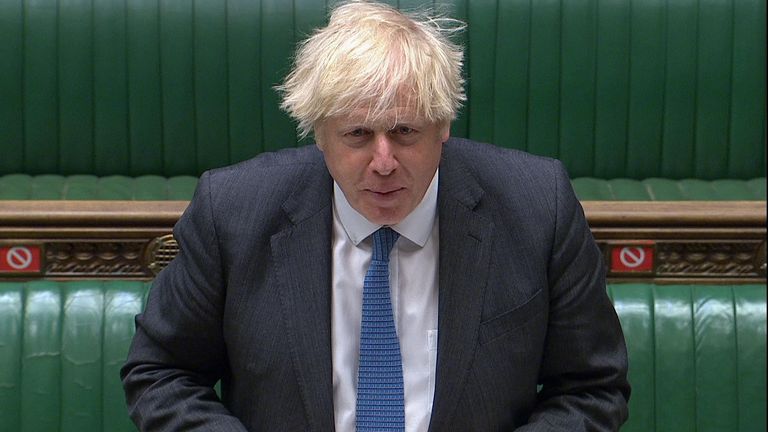It was never likely that Boris Johnson would fire one of his cabinet over an alleged affair.
This afternoon Downing Street is busy attempting to shut down the Matt Hancock controversy and is making clear they regard the matter as closed.
But there are plenty of grounds to think this issue won’t go away that easily.
Number 10 knows the damage that can be done by stories that remind the public there can be one set of rules and assumptions kept by politicians – and another for everyone else.
Dominic Cummings‘s trip to Barnard Castle came ahead of a drop in Tory poll ratings last May.
Mr Johnson is thought to have regretted not sacking his senior aide at the time rather than endure the damage done to the government by defending him.
Could this cycle repeat itself?
As health secretary, Mr Hancock signed into law the regulations that he is accused of breaking.
It does not help that everyone is being invited to judge whether the kiss in The Sun was a “reasonably necessary” exception to the ban on indoor contact, the legal test laid down in the regulations.
Nor does it help that Mr Hancock was memorably quick to judge Professor Neil Ferguson when the then Sage scientist was found visiting his lover, and he later resigned.
A snap poll by YouGov found 49% wanting him to resign and 25% remaining.
Number 10 will also be worrying about the known unknowns.
The Sun, which produced the extraordinary snatched photos of Mr Hancock in an embrace with his friend from university, asserts that the health secretary was conducting a “secret affair”.
This is not what the pictures show, and it is unclear what allowed the paper to assert this with confidence on its front page – and what else will come out.
Some officials believe the images were taken from a newly-built high rise building overlooking the Department for Health.
How long were there people taking pictures? Why was there a six-week gap between 6 May when the picture was taken and publication today?
The uncertainty around these questions will not be pleasant for Whitehall.
Thirdly, there is the question of whether there is yet another conflict of interest. Only weeks ago, Mr Hancock was found to have breached the ministerial code because he had shares in his sister’s firm that was an approved NHS supplier that he should have declared.
In this case, Mr Hancock is accused of securing a salaried role as a non-executive director for one of his longest standing friends with whom he was in some form of relationship.
Could Gina Coladangelo have stood to benefit as a lobbyist from the connection?
The Health Department says that the appointment was made in the “usual way” and “followed correct procedure”.
But this will now open the door to a renewed focus on Mr Hancock, appointments and contracts.
Even Mr Hancock’s friends think that Downing Street’s attempts to shut down this issue may not work.
He was already under pressure from Mr Cummings’s attacks, and Mr Johnson has already spent political capital defending him to deny his former aide a scalp.
The health secretary issued a statement apologising and pleading for privacy for his family.
Mr Hancock’s family and Ms Coladangelo’s family were understood to be close friends, so the price that will be paid on a personal level is likely to be high.
Will he even want to stay in his job?



